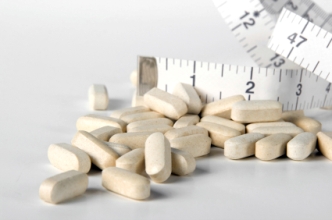The Deal With Diets
High-protein diets. Low-fat diets. All-vegetable diets. No-carb diets. With all the focus on dieting, how do you figure out what's healthy and what isn't?
Lots of people feel pressured to lose weight and try different types of diets. But if you really need to lose weight, improving your eating habits and exercising will help you more than any diet.
Why Do People Diet?
People diet for many reasons. Some are at an unhealthy weight and need to pay closer attention to their eating and exercise habits. Some play sports and want to be in top physical condition. Others may think they would look and feel better if they lost a few pounds.
Some people may diet because they think they are supposed to look a certain way. Actors and actresses are thin, and most fashions are shown off by very thin models. But this look is unrealistic for most people — not to mention physically damaging to the models and stars who struggle to maintain it.
By the time they turn 12 or 13, most teen girls start to go through body changes that are natural and necessary: Their hips broaden, their breasts develop, and suddenly the way they look may not match girls on TV or in magazine ads. Guys develop at different rates, too. Those guys with washboard abs you see in clothing ads are usually in their twenties.
Can Diets Be Unhealthy?
Any diet on which you eat fewer calories than you need to get through the day — like an 800-calorie-per-day diet, for instance — can be dangerous. Diets that don't allow any fat also can be bad for you. Everyone needs a certain amount of fat in their diet — about 30% of total calories — so no one should eat a completely fat-free diet.
Don't fall for diets that restrict certain food groups, either. A diet that requires you to say no to bread or pasta or allows you to eat only fruit is unhealthy. You won't get the vitamins and minerals you need. And although you may lose weight, you'll probably gain it back as soon as you start eating normally again.
Some people start dieting because they think all the problems in their lives are because of weight. Others have an area of their lives that they can't control, like an alcoholic parent, so they focus excessively on something they can control — their exercise and food intake.
People who diet may get lots of praise and compliments from friends and family when they start losing pounds, which makes them feel good. But eventually a person reaches a weight plateau — and doesn't lose as much weight as before because the body is trying to maintain a healthy weight. People in these situations eventually discover that, even if they do lose weight, they aren't any happier.
Some people may find it hard to control their eating, so they stick with an extreme diet for a little while, but then eat tons of food. Feeling guilty about the binge, they vomit or use laxatives. Eating too little to maintain a healthy weight (anorexia) or eating only to throw up the calories (bulimia) are both eating disorders, which are harmful to a person's health. Someone with an eating disorder needs medical treatment right away.
So How Can I Lose Weight Safely?
When you're a teen, dieting can be dangerous because you may not get the right kinds and amounts of nutrients, which can lead to poor growth and other health problems. But eating healthy meals and snacks combined with reasonable amounts of exercise can help you lose weight and develop properly at the same time. For a lot of people, just being more active might help them lose weight without even changing what they eat. Regular exercise also helps them feel healthier and better about themselves.
The best way to diet is to eat a wide variety of enough food to meet your body's needs. Aim to eat more fruits and veggies, cut back on meats high in fat (like burgers and hot dogs), greasy fried foods, and sweets, and drink more water instead of sugary drinks like sports drinks or sodas.
If you are concerned about your body's size or think you need to lose weight, talk with your doctor or a registered dietitian, who may reassure you that you are at a healthy weight. Or if you are overweight, he or she can sit down with you and determine the best way for you to reach a healthy weight.
Great Ways to Find Good Health
If you want to change your health habits, here are some tried-and-true tips:
- Exercise! Find a sport you like, walk to school, or ride a bike a few times per week.
- Drink fat-free or low-fat milk. (Many teens mistakenly think that milk has more calories than other drinks like soda. But a cup of skim milk has only 80 calories as well as protein and calcium. A can of soda has 150 calories of sugar and no other nutrients at all.)
- Eat a variety of foods, including plenty — at least five servings a day — of fruits and veggies. (And no, unfortunately, potato chips don't count as veggies!)
- Drink plenty of water.
- Choose a variety of protein foods, like lean meat and poultry, seafood, beans, soy products and nuts
- Eat whole grains (like whole-wheat bread or pasta), which provide fiber, B vitamins, and iron.
- Eat breakfast. Studies show that people who eat breakfast do better in school, tend to eat less throughout the day, and are less likely to be overweight.
- Choose smaller portions at fast-food restaurants. Avoid supersizing even if it feels like better value.
- Stay away from fad diets — you might lose a few pounds temporarily, but if you don't focus on changing your habits, you'll probably just gain it back when you go back to your usual way of eating.
- Don't take diet pills, even ones you get over the counter.
- Avoid seeing foods as "good" or "bad" or eliminating entire groups of foods, like dairy. If you eliminate entire food groups, you may miss out on important nutrients, like calcium.
- If you choose to become a vegetarian, talk to your doctor or dietitian about how to make nutritious vegetarian choices.
Dieting Danger Signs
How do you know if your diet is out of control? Warning signs include:
- continuing to diet, even if not overweight
- physical changes, such as weakness, headaches, or dizziness
- withdrawal from family and friends
- poor school performance
- eating in secret
- thinking about food all the time
- restricting activities because of food or compulsive exercise
- fear of food
- wearing baggy clothes as a way to hide thinness
- vomiting after meals or using laxatives
If you, or someone you know, shows any of these signs, talk to a trusted adult or doctor.
Dieting and weight control can consume your life. By accepting your body and making healthy choices, you can keep your weight under control and enjoy life at the same time.
Reviewed by: Mary L. Gavin, MD
Date reviewed: May 2013
-
Best Food Chart To Lose Weight Fast
The mechanism for survival of the human beings during their evolut
-
Eat This 2-Ingredient Pancake Every Morning And Watch Your Body Fat Disappear
All people just love pancakes, especially children. The
-
Finding a Diet Meal Delivery Service That You’ll Love is the Key to Weight Loss Success
Finding a Diet Meal Delivery Service That You’ll Love is the Key to We
-
Week 19: Eureka!
By Sarah As we approach the end of this p
-
Healthy Vegetarian Diet – Vegetarians & Vegans
As concerns about healthy vegetarian die
-
3 Fresh Ways to Control Cravings
V
- DON'T MISS
- Eco-Atkins Diet (vegan)
- The Amazing Lemon Benefits
- How To Get Rid Of Your Fat Stomach? Try This 60 Seconds Solution
- 5 Unexpected Reasons You’re Gaining Weight
- 8 Reasons Why You Should Consider Colon Cleansing
- High Protein Diet for Weight Loss in Vegetarians
- How to Activate Your Fat Burning Hormones Without Exercise
- How To Lose Fat In Your Waist, Legs And Hips
- Libby Tricketts diet tips
- Zeolite Water – The Most Powerful Detox Drink And Cure For Many Diseases




